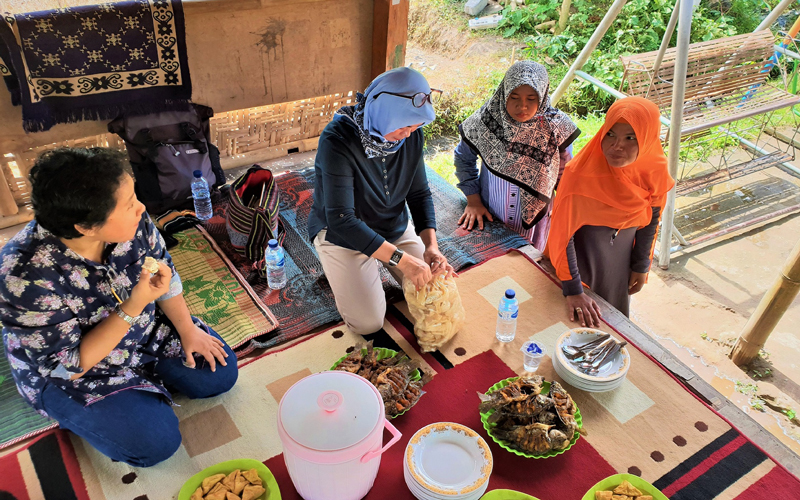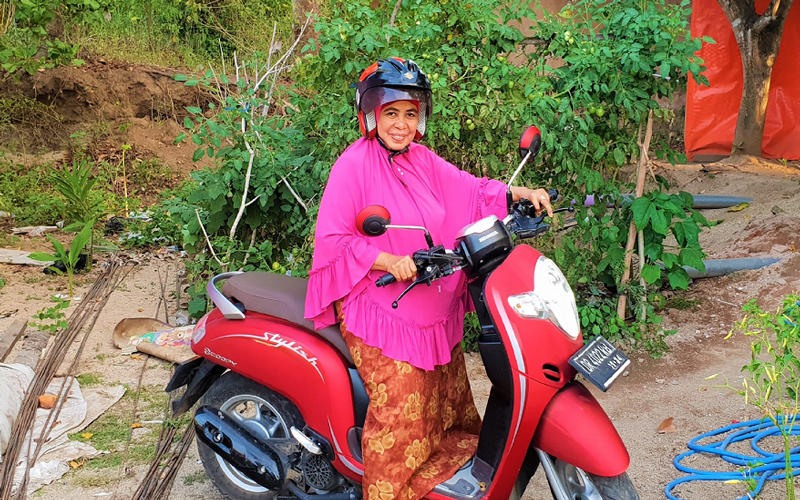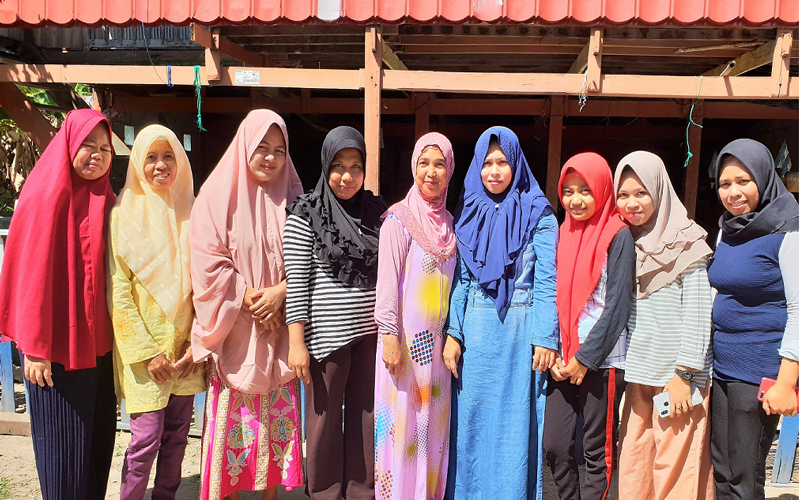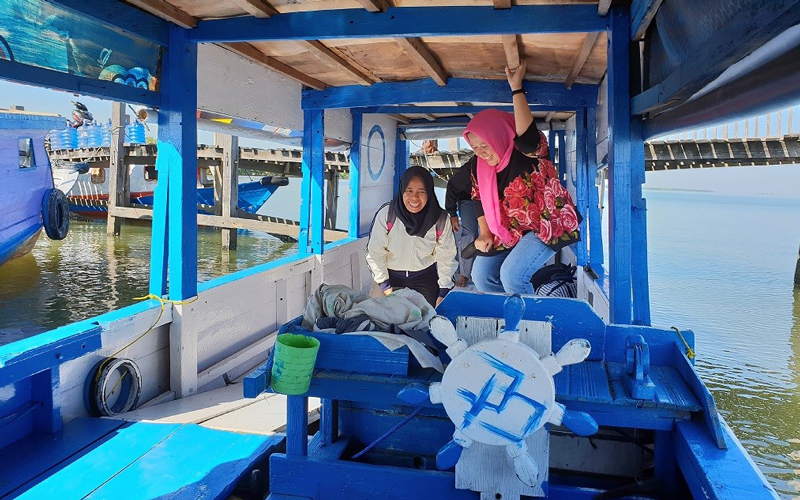Women’s collective action and the village law in Indonesia
How women are driving change and shaping pathways for gender-inclusive development in rural Indonesia.
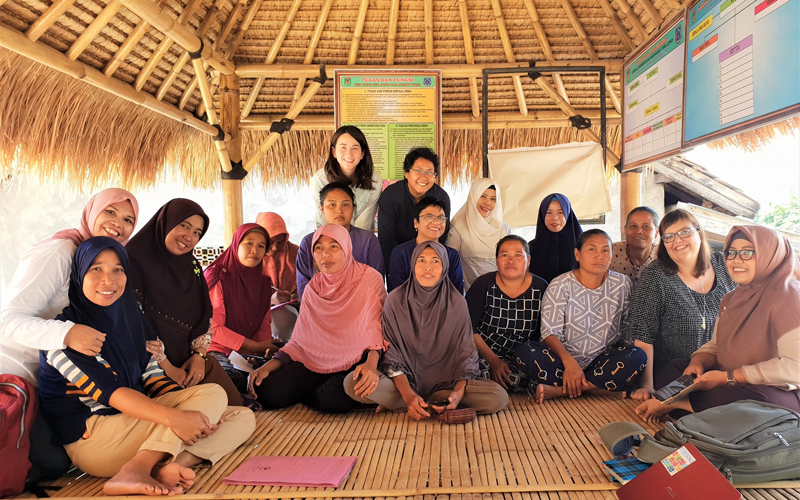
Overview
In 2014, Indonesia embarked on an ambitious agenda to devolve some authority for local development to village authorities through the Village Law, with budgets directly channelled to nearly 75,000 villages across the archipelago to implement local-level initiatives. The new Law emphasises the importance of participatory community decision making, poverty reduction and, importantly, gender equity. The changes introduced under the Village Law provide a significant opportunity for women to increasingly influence village governance and development decisions so as to improve their wellbeing.
Covering a range of sectors, places and contexts throughout Indonesia, this research explores if and how women’s collective action in different forms – both at the grassroots level and in more structured advocacy and support for village women from civil society organisations concerned with gender equity – has facilitated changes in the ways power is exercised and decision making operates in rural villages and districts to be more inclusive of women. These are types of change that can have profound impacts on the everyday lives of rural women in Indonesia.
The research draws from collaborative, in-depth research by the University of Melbourne and Universitas Gadjah Mada across a diverse range of regions from Sumatra, to Java, to Kalimantan, Sulawesi, and East and West Nusa Tenggara in nine provinces, 12 districts and 14 villages. We also collaborate with 15 civil society organisation partners in Indonesia focused on gender inclusion and women’s empowerment nationally and subnationally. In collaborating with such organisations, the research has tended to capture in ethnographic detail and comparatively the voices and experiences of more vulnerable rural village women, women who have often experienced multiple-dimensions of poverty.
Through the research we ask:
- In what contexts, to what extent and through what mechanisms local collective action by women has influenced the implementation of the Village Law
We also aim to:
- Understand how such influence varies across Indonesia
- Identify what has constrained or enabled such influence, and
- Determine what has been the role for civil society organisations in this process
Outcomes / activities
The research project involves a range of activities, with further new research also underway:
- Collaborative research design involving women’s organisations throughout Indonesia
- Data collection through extended village stays, social network mapping, documenting women’s life stories, observations, in-depth interviews and FGDs with more than 600 people across Indonesia
- Additional analysis of quantitative data on women’s groups and civil society organisations in 27 provinces
- Iterative within-case and comparative analysis, also involving research partners
- Developing an edited volume of detailed case studies from across Indonesia to share with audiences
- Developing sets of women’s life stories and the changes they have experienced to share with audiences
- Interactive and collaborative seminars with women’s organisations, village women, policy makers, international development agencies, universities, and the public on a range of themes
- A digital platform for public audiences, researchers, academics, policy makers and practitioners to navigate research findings in different formats and languages
- Policy briefs and recommendations
- Inputs into new program and policy design for reducing gender inequalities in Indonesia
- Podcasts and magazine articles
- Journal articles and books
- New research on the implications of COVID-19 for village women
- Other related research
Impact
This research is being used by and is helpful for different international and domestic audiences, including both general audiences and academics, civil society organisations, policy makers, international development agencies and practitioners concerned with tackling gender inequality and understanding:
- The constraints and opportunities for, and mechanisms by which, women are able to overcome barriers, improve their everyday lives, and exercise voice and influence on decisions which affect them
- Understanding variation in these constraints and opportunities in different social fields, policy settings, and geographic and other contexts
- How grassroots women’s collective action might be supported by group structures of different kinds that involve women, and how, or via what mechanisms, external actors (not just civil society organisations) might help bolster women’s influence in villages and beyond
From women’s own experiences, audiences also gain insights into how policy, program development and delivery, and social and political structures might be improved to be more gender inclusive, especially in rural areas.
More information
- How women are changing Indonesia – Pursuit, University of Melbourne, December 2019
- Episode 59: Empowering women in Indonesia’s villages – Ear to Asia podcast, November 2019
- Reducing barriers to gender equality in Indonesia – East Asia Forum, 25 March 2019
- Women’s Collective Action and the Village Law in Indonesia
Learn more at the Gender, collective action and governance in rural Indonesia project website.
All material on this page is courtesy of Diprose, R., Setiawan, K.M.P. and Savirani, A. 2020. Gender, Collective Action and Governance in Rural Indonesia. University of Melbourne. Online resource.
Project details
Sponsors
Australia-Indonesia Partnership for Gender Equality and Women’s Empowerment (MAMPU) and agencies of the Governments of Australia and Indonesia
Project team
Dr Rachael Diprose (School of Social and Political Sciences, University of Melbourne)
Dr Amalinda Savirani (Politics and Governance Department, University of Gadjah Mada)
Dr Ken Setiawan (Asia Institute, University of Melbourne)
